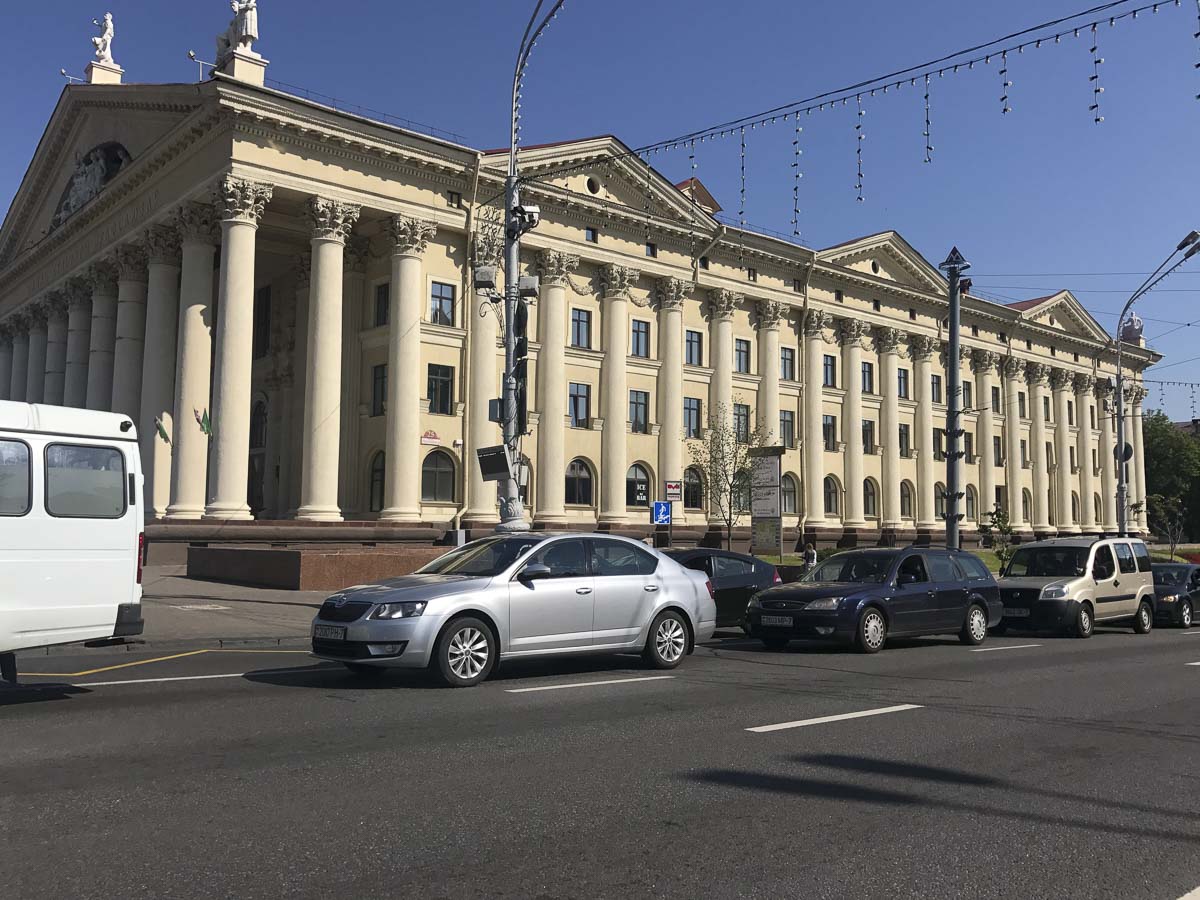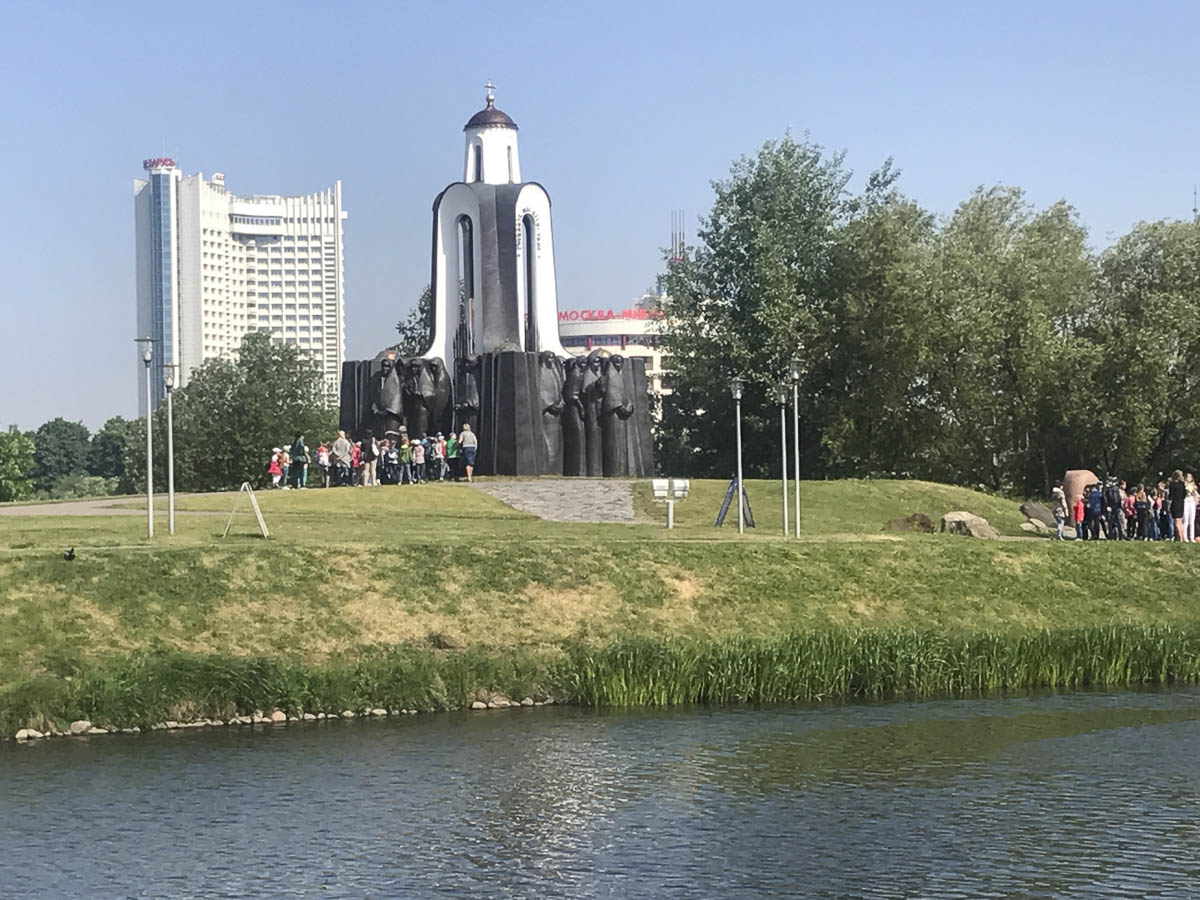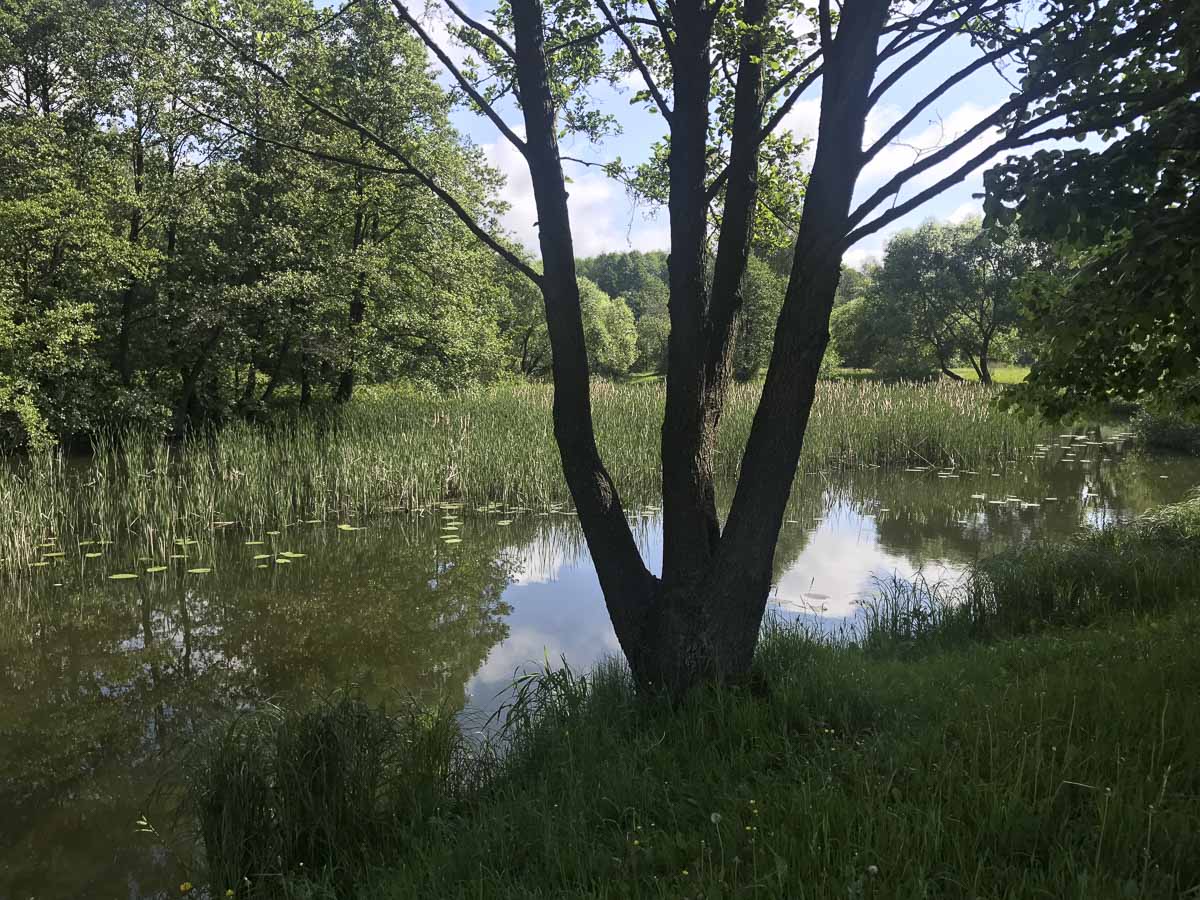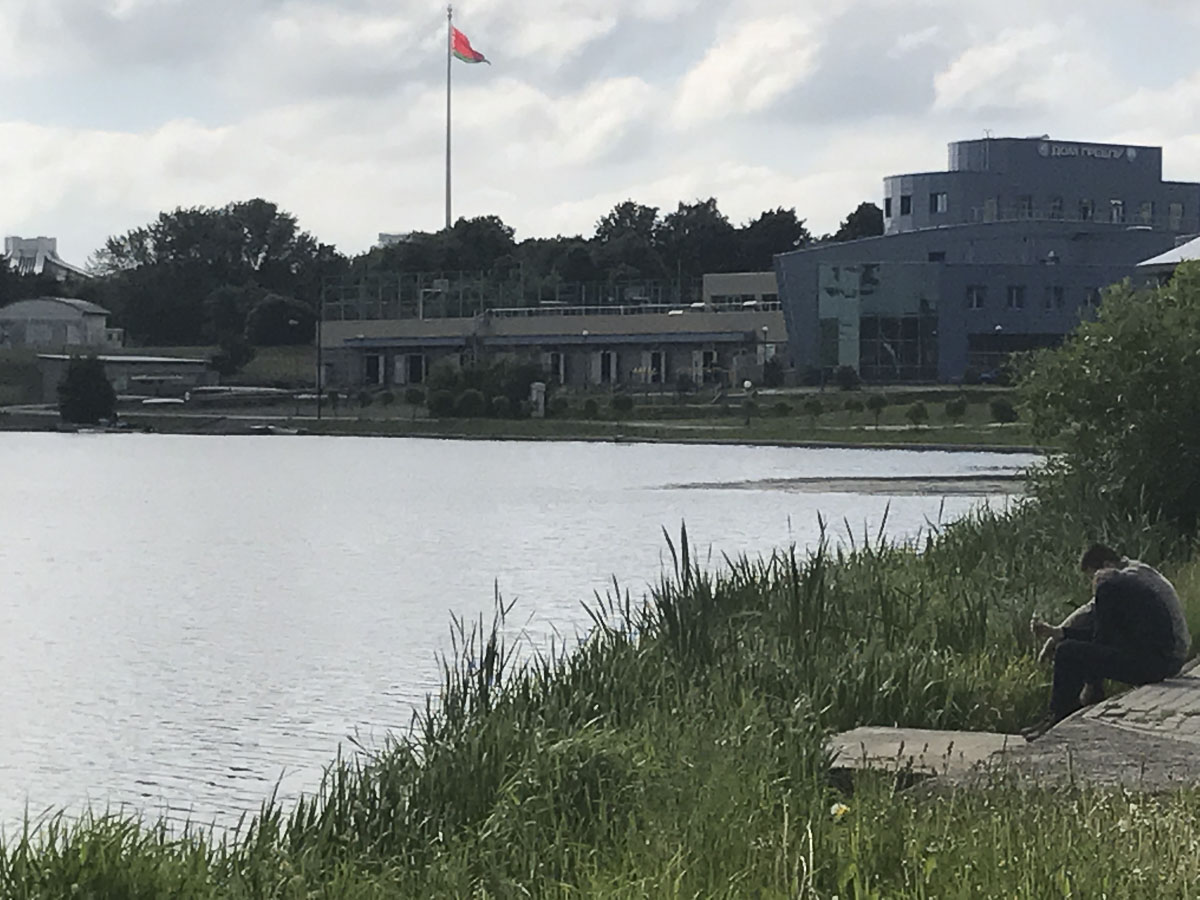CAN MULTILATERALISM BE BROUGHT BACK?
At recent meetings in Vienna organized by the Austrian Foreign Ministry and in Minsk organized by the Minsk Dialogue Forum the issue of how to react to the radically new and turbulent world order was in centre of discussion. These are the main lines for my inputs. In addition the recent book of Robert Kaplan „The return of Marco Polo’s world“ has provided some very valuable arguments for these comments.
Cooperation or Confrontation
Today we see not only new grave turbulences but also a rising tendency of „going it alone“ expressing individual power instead of cooperation and looking for compromises. The world is de facto multipolar but some act as if they were the only polar of this world and the only global power. Seeing the world from a European perspective, it is clear that Europe and in specific the EU is still economically powerful but lacks strong political power and has to give an answer to the new challenges coming from the US, Russia and China.
More and more the relations of different member countries to these powers influence decisions of the EU or are diluting or even preventing some of those decisions.The soft power concept of the EU has its limits and that is even true for NATO. For the moment, the US is the country with the strongest willingness to exercise its economic, political and military power. But even if the present administration is critical of fixed alliances and international cooperation it must recognize other players to limit the costs of foreign policy actions.
Inside the Eurasian continent there is a strong diversity of political cultures, attitudes and orientations. The three main actors are the EU, Russia and China. But one should also add India and some other actors like Iran and Pakistan. But of course neither can be thought of without the strong US attempts to influence the policies of these actors nowadays more by bullying and threatening to levy sanctions than by soft power instruments.
But in spite of US activities the Eurasian continent is in the process of finding new development paths. Robert Kaplan in his recent book speaks of a very fluent Eurasian continent where it is no longer possible to draw clear dividing lines between the EU, Russia, China etc. According to him Russia for example regained influence in some Easter European countries – not by sending troops but by ideological and media influence.
Irrespective of these influences the biggest conflict inside this continent exists for the moment between the EU and Russia. There is no easy way out of this confrontation. And there is no solution even of the regional conflict over Ukraine without looking for cooperation in other fields. Paradoxically Russia’s ideological and media influence in some countries might help to find solutions by softening some EU positions, but on the other side it may provoke even stronger reactions from those who detest this influence. So this new connectivity has a double face and may support contradicting reaction.
A new Helsinki process?
The divisions inside Europe have the strongest impact on the smaller countries in the East of the European Union especially beyond the EU borders. Neither the EU nor Russia can win this battle of influence and belonging. The recent extended trade agreement with Armenia but also with Moldavia with the inclusion of Transnistria have shown that it is possible to have intensive relation with both sides. There must not be exclusive relations. But to come to a comprehensive solution we must start a more comprehensive process.
A Helsinki 2 process could be envisaged. It must not be a copy of the original Helsinki process but it could be similar insofar as all countries concerned should participate and a wider security architecture for Europe could be the result. But for the moment it is more an issue of finding a suitable process without having a clear conception of the final result. Such a process must also include countries from the Caucasus and Central Asia – which was also the case at Helsinki 1 – to respond to the new geo-political realities especially in the Black See Area. But it could even extend into the Middle Eastern and Northern African region, when discussing the migration issue.
The conflict zone in wider Europe has anyway moved to the East and the South East due to the breakdown of the Soviet Union and the extension of the EU and of NATO. What was „Eastern“ is partly now „Western“ and in that respect Eastern Europe is now Ukraine, Moldavia, Armenia and Georgia. So the Black See basin is in the center of the conflicts.
We can also follow the arguments of Robert Kaplan, when he analyzes the fact that Russia is particularly keen on having free access to the Black See Basin. This is a link between Russia and the Mediterranean Sea. There are no legal arguments respective justification for the annexation of the Crimea and Russian led activities in the Eastern Ukraine, but there is a strong geo-political logic. As it was and is in the interest of the „West“ to enhance the expansion of the EU and of NATO.
In this respect, the new alliance of Russia with Turkey and Iran is also geopolitically logic as is the engagement in Syria. The Black Sea area and in less importance the Balkans are areas where West and East meet and it is not always peaceful. Even if the dominance in these region is not vital for Russia or the EU, the perception of threats due to the expansion of the „other“ is creating realities and the wish to prevent that the „other“ is ruling these areas is dictating the foreign policy of the EU and Russia. But one should also recognize, that even if a certain confrontation and competition is not avoidable, this does not exclude forms of cooperation. One example could be Syria in spite of strong differences concerning the Assad regime.
Middle East needs political and economic cooperation inside and also from outside
The region of the Middle East and especially the necessity of stopping the war in Syria and starting the reconstruction should bring the EU and Russia together. Russia is for the moment the only player who can speak with all actors in the region. And the EU is the only actor which can organize and finance the reconstruction in a progressive way. Both countries – with all differences on the existing regime – should cooperate to establish a new Syria predominantly freed from terrorism and open for a new start. And both actors have an interest to prevent a bloody conflict between Iran and Israel.
The countries of the EU are – besides the immediate neighbors – the countries which are the first one to be affected by refuge flows. And the influx of refugees has a big influence on the development inside Europe and the relationship with the outside world. It is part of the fluidity Robert Kaplan is speaking of. Even if some countries inside the EU are not ready to welcome and to care for refugees and are very critical towards migration from outside the European continent this creates divisions and discussions inside the European Union. Migration has definitely an impact on the development of the EU.
A new start for a Eurasian Free Trade Area
The old vision of a free trade area between Lissabon and Vladivostok should be put again on the table with – also with caution and realism but also with a clear willingness to find an implementation of that vision. The two strong multilateral organizations of this continent which are working on economic integration, the European Union and the Eurasian Economic Union should start a serious discussion of cooperation. They will not agree on all regulations but they have to start to design a new free trade area parallel to political talks. And also China could be involved into such an effort at a later stage.
China developed the concept of a new Silk Road or One Belt, One Road Initiative. This endeavor is already in a stage of realization and will dramatically change the interconnectivity on this continent. But it is still predominantly a Chinese project and must be transformed into a common project. Therefore all partners must define their special interest in the realization of the different transport links and hubs. The EU must also take a lead in defining the European interests. This should not be left to the individual member countries, who are anyway to weak to be a partner on equal footing to China.
Is Afro – Eurasia appearing on the global landscape?
Several Asian countries, China, India and Japan are very active in Africa. And that is true also for the EU which is the biggest investor. Of course there is competition between these different actors. And that can be in the interest of African countries. But competition does not exclude cooperation. The African continent is a continent of big hopes and opportunities but also of conflicts and emigration. The cooperation of countries of the Eurasian continent could help to realize a sustainable development for Africa.
The implementation of the SDGs (Sustainable Development Goals) should also be a common endeavor of the countries of Eurasia. From clean air policies to water management common strategies could be developed. The global warming will have dramatic influence on the development of some countries. New refugee flows because of environmental changes may be the result. This should create another possibility for close cooperation on this continent. In this connection Robert Kaplan speaks already of „Afro – Eurasia“ as an „entity“.


P.S. It was the first time I was in Minsk. I had in the past – during my membership in the European Parliament – many discussions with Belarusian politicians, mostly from the suppressed opposition. But I was also convinced that a dialogue with all political groups, even if not democratically elected would be necessary. Unfortunately this dialogue was and still is partly blocked by some right wing EU politicians especially from Poland.
My discussion with the Belarusian deputy foreign minister in Minsk confirmed my impression, that Belarusia is interested to play an independent role in the European concert – irrespective of strong links to Russia. And it is not easy for Belarus to present a separate identity to Russia. But they try hard and that was also confirmed at the Minsk Dialogue Forum, where a broad range of people were invited and and a diversity of opinions were expressed.
What was really surprising for me was the impression I got from the city of Minsk. It was totally destroyed during the war and was mostly rebuilt in a neo-classical and „Stalinist“ style, but in a very modest and interesting way. And even the fifties and sixties housing blocks are in good shape. In the mean time several buildings of modern, attractive architecture have been built. In addition Minsk has many green areas and a lot of sports facilities. Overall it was a real surprise to see Minsk as a modern European city with its own characteristics – for example many remains from the Soviet era including statues and street names of former Soviet leaders.


